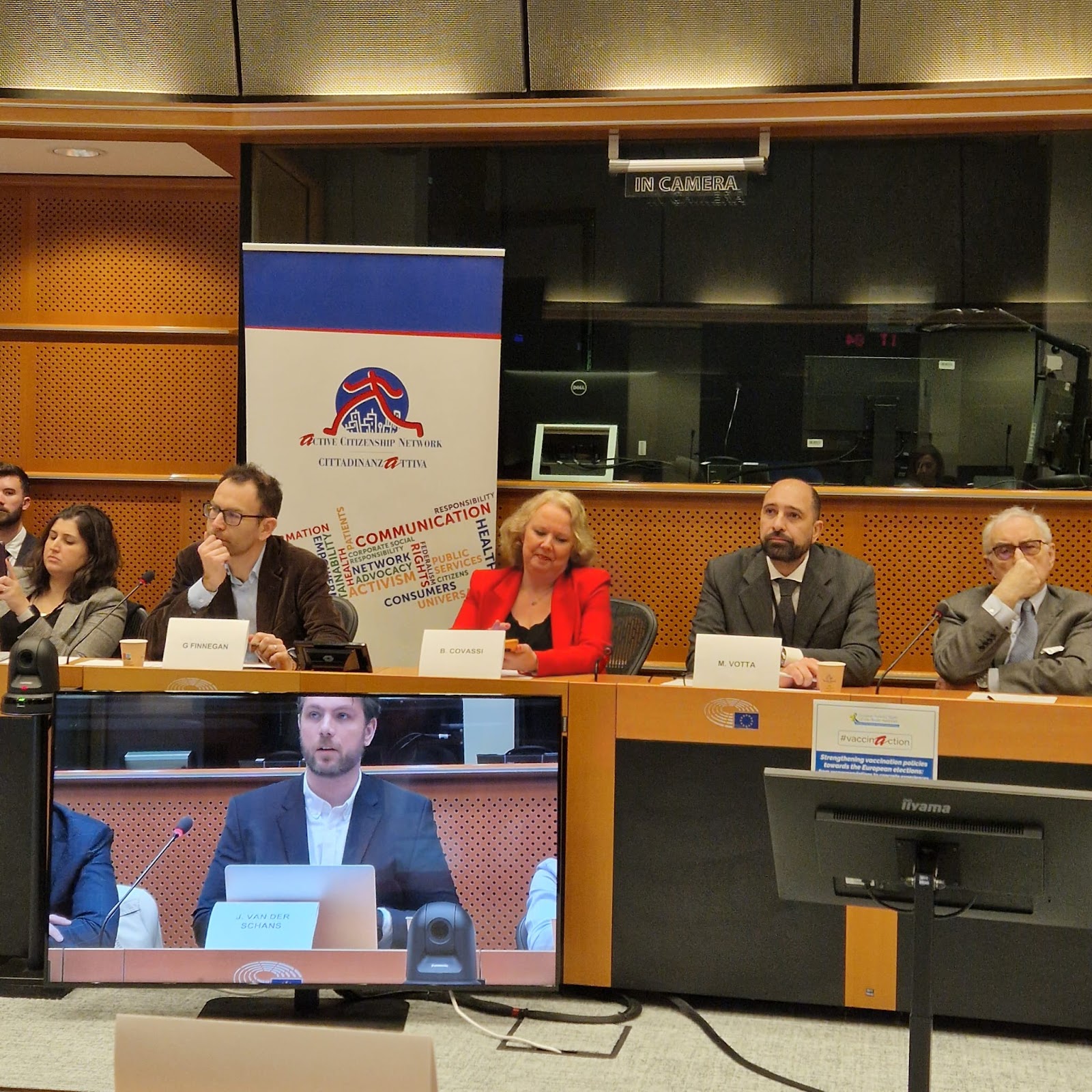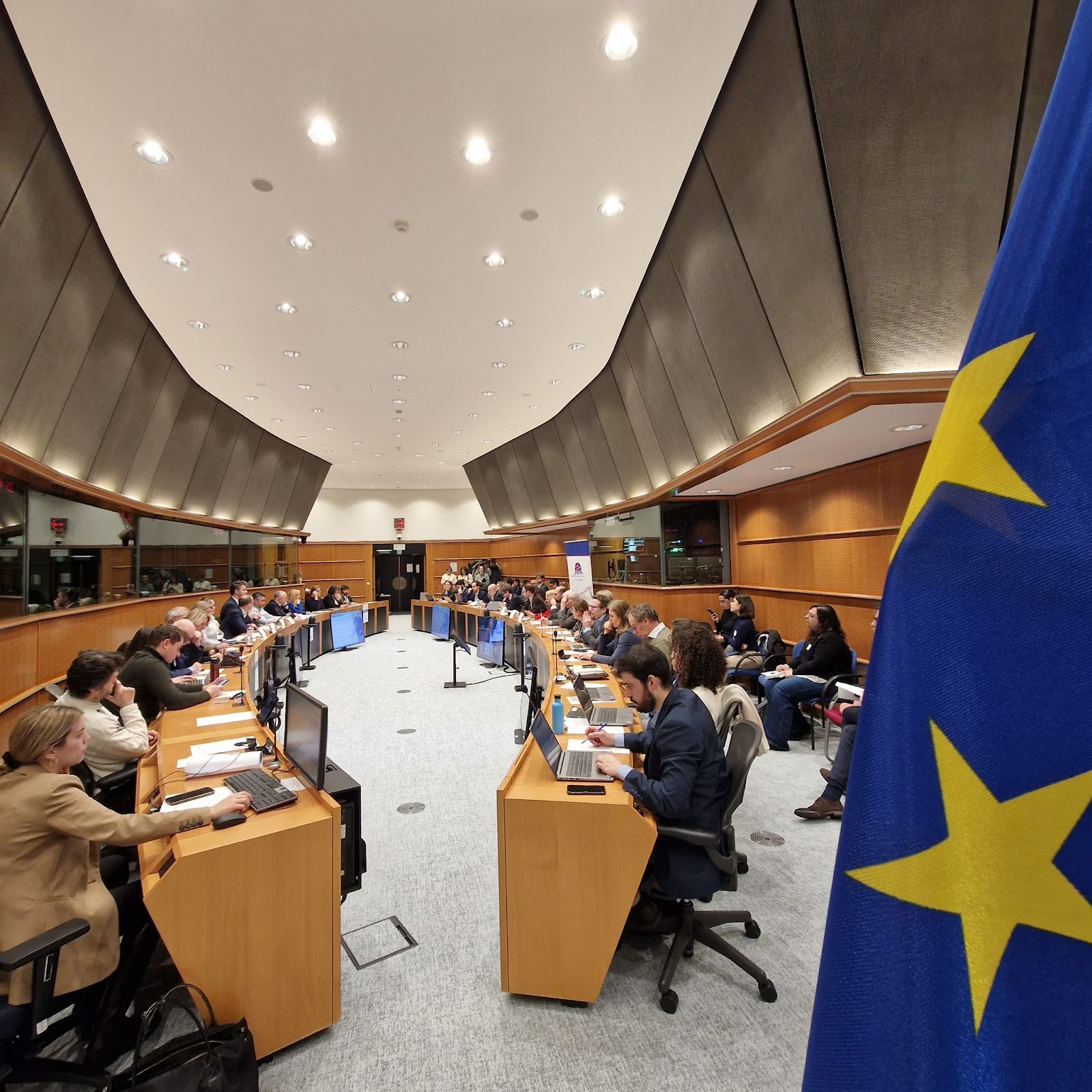Voters across Europe will elect a new European Parliament in June. Shortly after that, a new European Commission will take office. This point in the five-year political cycle has prompted reflection on progress in immunisation policy over the past five years, as well as some worrying signs that the issue is slipping off the agenda.
Key points
- Vaccination can protect health at all ages and support resilient health systems
- Immunisation is viewed by some as low priority in EU policy
- An MEP interest group on life-course immunisation is proposed as one way to put the issue back on the agenda
It has been a long five years. In 2019, the newly-appointed EU Commissioner for Health, Stella Kyriakides, was given a long list of priorities, including addressing vaccine uptake. Specifically, in her ‘mission letter’, Commission President Ursula von der Leyen said:
‘I want you to prioritise communication on vaccination, explaining the benefits and combating the myths, misconceptions and scepticism that surround the issue.’
Since then, we have had a global pandemic in which vaccines played an important role. And yet, health policy experts fear that a combination of ‘fatigue’ and the rise of other urgent priorities have made immunisation seem less important in policy circles.
But, as measles continues to cause outbreaks across Europe, respiratory diseases put pressure on hospitals, and vaccines offer opportunities to end cervical cancer ‒ what can be done to turn the tide?
Election priorities
‘My impression is that, in the pre-election debate, the health conditions of European citizens are not at all at the centre of the thoughts of current policy makers nor of those who intend to run as candidates,’ said Mariano Votta, Director of the Active Citizenship Network (ACN), the EU branch of the Italian NGO, Cittadinanzattiva.
‘At a time when European citizens have high expectations of Europe’s health systems, the complete absence of new health initiatives in the State of the Union address delivered by the President of the European Commission in September last year was widely commented on.’

However, speaking at an event in the European Parliament organised by the ACN, Mr Votta said there had been some ‘encouraging signs’, including the European Council conclusions on vaccination for people of all ages, and the recent focus on vaccine-preventable cancers. ‘But it must also be said that vaccination policies are missing from the latest EU4Health work programme,’ he added.
An ‘interest group’ on life-course immunisation?
One way to tackle the apparent lack of political momentum behind immunisation, to bring together politicians who appreciate the value of vaccines, according to Sandra Evans, Coalition for Life-Course Immunisation (CLCI).
She called for the establishment of an MEP Interest Group on LIfe-Course Immunisaton at the next European Parliament, to help shape a European narrative of vaccination informed by data and expert insights.
The proposed group, which already has the endorsement of four MEPs, would be equipped with evidenced-based information on which to base policies and campaigns, and to engage with their constituents on the benefits of vaccines at all ages and stages of life.
Resilient & sustainable systems
Laurent Louette, Vaccines Europe, said the EU has recognised the value of immunisation through a series of policy measures in recent years – but there is a need for a sustained coordinated approach between European institutions, in the form of a European Immunisation Strategy.
While the policy debate is crowded by multiple crises, health should remain a foundation stone of European society. ‘Many of the challenges we face are interconnected with the spread and rise of existing and new infectious diseases,’ he said, pointing to the climate emergency, economic pressures, and ageing populations, among others. ‘This is why immunisation must be at the heart of building more resilient and sustainable health systems.’

This point was also made in the presentation by Dr Jurjen van der Schans of the VITAL project which looks at the health and economic impact of protecting older people. He also highlighted the importance of immune system variation in how people respond to vaccines. ‘This may underlie the differences in responses to infection and vaccination, resulting in vaccine failures and lower protection rates against infectious diseases,’ he said.
Dr van der Schans said researchers were exploring ways of predicting how individuals will respond to vaccines, and adjusting vaccination strategies accordingly. The future could see a more personalised approach to vaccination, tailored to the individual based not only on age, but on their physiological characteristics.
The VITAL project, co-funded by the EU, has one year left. By the time it is completed, a new political cycle will have begun.
The event was hosted by ACN as part of its #VaccinAction EU project.
Building vaccine confidence
The apparently declining interest in vaccines among policymakers may reflect a wider public fatigue that followed COVID-19. Studies suggest the public grew weary of discussing vaccines in the wake of the pandemic.
Prof Heidi Larson, Director of the Vaccine Confidence Project, said public opinion on the importance of vaccines is volatile. One of the more persistent trends since the pandemic is a decline in confidence among younger people. She proposed targeted campaigns to engage with this cohort of the population, many of whom will become the next generation of parents.
Angelos Kassianos, Cyprus University of Technology and the Co-Operator project, pointed to institutional trust as a key driver of vaccine intention. Vaccine hesitancy by improving trust in healthcare professionals, belief in collective responsibility, and understanding of the necessity of vaccinations.
Vaccine Confidence Index Map – The Vaccine Confidence Project




